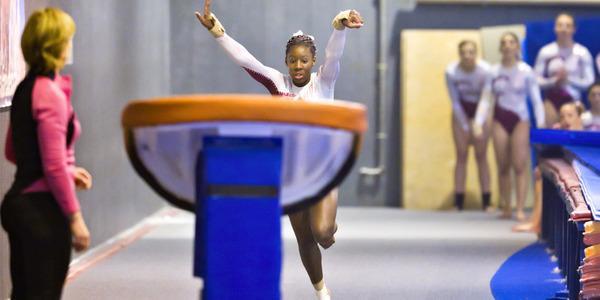
What do you do After a Loss?
It’s probably a question you haven’t given much thought.
Often after a loss, athletes allow their emotions to take over. The more invested you are in a competition, the more intense feelings you experience.
For example, losing a playoff game MIGHT generate much more intense and negative feelings. Failing to drop time after a taper MIGHT make you feel like your season was a waste.
Getting knocked out early in a tournament that you were favored to win MIGHT ruin your confidence over the next several weeks.
The significant word is MIGHT! Might is a conditional word, meaning it could either happen or not happen, and that condition is based on perspective.
Perspective is how you see an event. Your confidence may decrease when you see a loss as a negative statement about your ability. When you see your teammates drop time during a taper and you don’t, you might feel something is wrong with you.
When you are favored to win a tournament and don’t advance in the beginning rounds, you may see yourself as an athlete who chokes.
When you make negative assumptions after losing, you learn nothing about improving future performances.
The most practical perspective is “If you lose, learn.”
An example of learning from a loss is how Philadelphia Eagles quarterback Jalen Hurts responded after the team’s 38-35 loss to the Kansas City Chiefs at the 2023 Super Bowl.
Hurts commented on the importance of finding the lessons from a loss.
HURTS: “You either win or you learn. “You know, I think the beautiful part about it is, everyone experiences different pains, everyone’s experience is different, but you decide if you want to learn from it. You decide if you want to use that to be a teachable moment. And I know what I’ll do.”
Even though Hurts set three NFL records in the game, Hurts is still committed to learning from the experience and growing his game.
How do you learn from losses?
- Take some time to settle your emotions. This period of time should be short. It’s essential to move on instead of ruminating about the game.
- Objectively, reflect on the game. Identify what you did well and what you did not do well. This process should be objective. You are not looking to replay the bad events in your mind.
- Identify how you can improve areas of your game that contributed to the loss.
- Create an practice plan and what you will do to improve your game’s weaker aspects.
Feeling sorry for yourself never improves performance and often leads to repeating the same mistakes. The only strategy to improve from losses is to learn.
Evaluating your performance should become a habit that includes identifying mistakes, ineffective game plans, and mental losses, as well as pointing out positive aspects of your performance.
The evaluation process should be the same after every performance, regardless of the outcome.
You can’t control past losses, but you can always focus on improving your game from the lessons you learned.
Related Sports Psychology Articles
*Subscribe to The Sports Psychology Podcast on iTunes
*Subscribe to The Sports Psychology Podcast on Spotify
Download a free sports psychology report to improve your mental game!
Learn more about our one-on-one mental game coaching.
The Composed Athlete

“The Composed Athlete” is presented on 80-minute Audio Programs with a 70-page step-by-step workbook that guides you through the program each day. It’s a complete system for conditioning your mind to have maximum composure in competition.
“The Composed Athlete” was developed for any level coach, parent, or junior to professional athlete who wants to improve performance and gain a competitive edge. It does not matter if you are a fledgling junior athlete; or a seasoned professional, plagued with distractions; or you just wanting to learn how to improve your composure…
